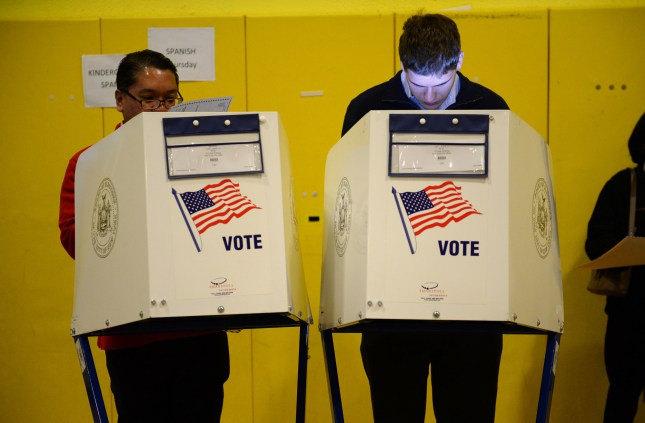Diana Hess, Dean of the School of Education at the University of Wisconsin spoke on the importance of political and civic engagement in higher education as a part of the Wisconsin Idea lecture series Wednesday night.
According to Hess, many students don’t come to college with the skills they need to be politically engaged. A lot of students come from hometowns that aren’t very diverse and therefore have never had the opportunity to hear opinions different from their own.
“A diverse student body can be such a powerful democratic asset,” Hess said. “One of the best things about higher education, especially on a campus like this, is that if things go the way they should, you encounter people who are quite different from you.”
Hess said some organizations on campus such as First Year Interest Groups and community-based learning classes help promote diversity more than others.
FIGS and community-based learning classes tend to be more diverse than normal classes on campus and they help students be more aware of the diversity around them, Hess said.
“One reason why we should care about preparing young people for civic and political participation is because this is a really good site to do it,” Hess said. “We’ve got lots of students, they’re different from one another, we’ve got all sorts of courses that can be constructed … to get people to meaningfully engage.”
Hess also discussed political polarization. She said that people in the U.S. who are strong partisans like to be surrounded by people who are also strong partisans with the same political views.
Hess said in 1994, people didn’t care very much if other people had opposing views or were affiliated with a different political party. In 2016, however, people didn’t like others of the opposite party and consider them a threat, she said.
“On the one hand we need to teach students how to participate politically in a highly partisan environment … but we don’t like to think of ourselves in higher education as engines to perpetuate the very wrongs that we know are troubling our system,” Hess said.
According to Hess, UW started a project a couple of years ago called “The Discussion Project” to help professors create a good discussion environment where students could form their own uninfluenced opinions.
Hess also mentioned the National Study of Learning, Voting and Engagement, a study aimed at keeping track of students who have and haven’t voted and students who are and are not registered to vote.
Voting rates and registration rates drastically rose for the last election, more specifically for people who were enrolled in higher education, Hess said. But there was a significant gap in voting rates across different majors. STEM students tend to vote significantly less than other majors on campus.
“Whether or not you vote is a proxy for all sorts of other things that predict other kinds of participation … the fact that we’ve got some groups of students who are much less likely to vote than others tells me that we need to do something differently than what we’re currently doing,” Hess said.


